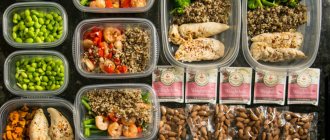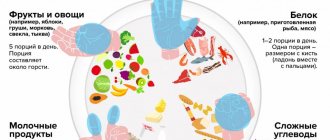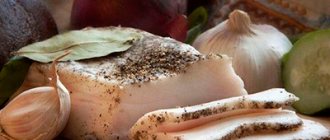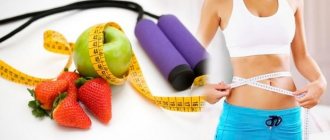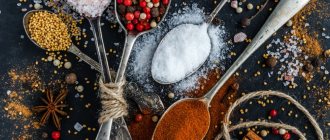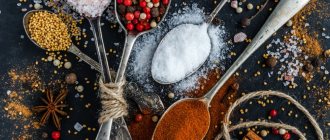- July 13, 2018
- Health
- Anastasia Mikhailyuk
Nutrition for athletes is one of the most important components before important events in their lives. Proper nutrition before competitions is also very important. After all, professional athletes often have to fly from one country to another, change time zones and climatic conditions. This also requires the right approach to your health.
What properties should an athlete's diet have?
A balanced diet for people with regular physical activity should be so carefully composed that the calories consumed are not less than the energy expended. Rather, on the contrary, there should be a small supply of them for the body. What do athletes eat before competitions? Let's talk about this further.
Thus, a balanced diet of a professional athlete should have the following properties:
- They consist of products of both animal and plant origin.
- Clearly match the athlete’s energy expenditure.
- Be easily digested and quickly absorbed.
- Have a balance in the ratio of fats, proteins and carbohydrates.
Before competitions, athletes eat some plant-based foods.
Mini – breakfast
A bowl of cornflakes, juice, an energy bar and half a piece of fruit is a standard breakfast in the Olympic Village. Day Green, a runner and gold contender in London, told The Guardian: "My breakfast consists of two pieces of toast with peanut butter, a cup of tea and a protein shake."
Derrick Atkins from the Bahamas has his own version of the Atkins diet. “I ate a couple of packets of multigrain muesli this morning, which are pure carbs,” he said. “I don’t think Dr. Atkins would approve.”
Article on the topic
10 Olympic champions who don't eat meat and win
Daniel Bailey ate a bowl of rice.
Neate, who attends the University of Arkansas, said he considers his score of 10.4, which dropped him from 41st to 54th place, an unfortunate mistake. Would he blame it on his breakfast of eggs and bacon? No, but he noted that he was looking forward to dinner, where his favorite Chicken McNuggets might be served. "They're free," he said, referring to McDonald's providing free food to the Olympic Village. "And I heard McNuggets are Usain Bolt's favorite food."
However, it turned out to be impossible to verify this, since after Bolt’s group was interviewed, he hastened to hide from meticulous journalists.
His teammate, Asafe Powell of Jamaica, who ran the course in 10.04, was silent for a long time before shouting “orange juice!” when asked about his breakfast.
- And it's all?
- Yes, that's all!
Diet before competition
The question of proper nutrition arises for everyone who dreams of a sports career, for those who have been in it for many years, as well as for sports coaches themselves. They, as a rule, delve into all the nuances on which the result of their ward may depend.
Many scientists have proven that before serious physical activity, athletes need to eat no earlier than 4 hours before the start. It should not be fatty or heavy food for the stomach. However, not all categories of athletes require such a strict diet.
The main task of nutrition for athletes before competitions is a balance in the ratio of fats, carbohydrates and proteins. And also, before the competition, the body must receive an amount of water that is enough to maintain good physical shape. It is very important that an athlete’s food before a competition should be something he likes and has a pleasant taste and aroma.
The main thing is water
Liquids should be given even more attention than food. Firstly, it allows you to control your weight. Secondly, it regulates body temperature and participates in energy production. On the day of the competition, you should adhere to the following scheme:
- 2–3 hours before the start of the fight - half a liter of water or juice;
- per hour - about 300 ml;
- in 15–20 minutes – 150–200 ml;
- during the battle - small portions every 15 minutes;
- at the end of the fight - up to 500 ml.
Depending on air temperature and humidity, these figures may vary slightly.
It is worth noting that this material provides information based on general recommendations of specialists, nutritionists, and trainers. You need to understand that an individual diet should be prepared for each athlete. After all, everyone’s goals are different: some are trying to lose weight, some are trying to gain weight, and some are just trying to stock up on the maximum amount of energy.
Healthy foods for athletes before competitions
Literally the day before the big day, you need to be careful with eating heavy food. Also, you should not chase exquisite overseas delicacies if the competitions are held outside the country.
Breakfast should be standard. Lunch and dinner are best filled with carbohydrates. It is better not to eat meat products and fish fried. It is recommended to boil or steam them. Oven baking is also a good option.
The liver always receives a dose of negative impact when a person eats fried, smoked or fast food. Many novice athletes underestimate the situation, thinking that they will be allowed to eat everything they usually do before a competition.
This is actually a misconception.
So, in the morning, people who lead an active lifestyle, including athletes, need to consume complex carbohydrates. It can be buckwheat, oatmeal, or wheat porridge. You can also make healthy toast by adding a slice of hard cheese,
Many people mistakenly think that it is good to eat protein for breakfast. On the contrary, it is better to leave protein foods for lunch. Experienced athletes know that they should not eat confectionery before competitions, as they can increase blood sugar levels. Such a jump may coincide with the start of competition, which will lead to a sharp feeling of weakness.
In addition, before the start of such an important event in the life of athletes, it is necessary to exclude foods rich in fiber. They can weigh down the large intestine.
Train your stomach
Just as you need to train your legs to handle the stress of running, you need to train your stomach to handle the constant up and down movement. Cramps and "runner's diarrhea" (the urgent need to have a bowel movement mid-run) are especially common among beginners, so don't be surprised if the sharp pain forces you to slow down.
The good news is that it can be avoided quite simply: don't eat too much before the race and give yourself time to digest the food. You'll soon learn which foods are best for you and which ones to stay away from. By the way, sports drinks, which most beginners don't need, can also cause some stomach pain.
And a couple of tips in conclusion...
Healthy nutrition during competitions
Competitions may not always last several hours, half a day or a day. It happens that athletes have the honor of showing their strength outside their country, and then they go abroad. This requires a lot of strength, patience, endurance, and good physical shape. The Olympics and various athlete conventions can last from 2-3 days to several weeks. During this period, it is especially important to pay due attention to your diet. Therefore, the question of how to eat before and during competitions and how to properly restore strength after the end worries many.
As you know, the human body is most active during the first 40-60 minutes of constant and active exercise. But this is provided that the correct performance of this or that physical work is observed. The human body is not a machine that, after filling the tank to the top, will again work at full capacity.
When glycogen is depleted, the body automatically begins to save it, giving less and less to the muscles, liver, kidneys and other organs and systems.
Don't overdo it with carbohydrates
Carbo-loading definitely helps with long-distance running, but most beginners start with shorter races, such as a 5K, and then don't go overboard on carbs.
Most people consume about 45-65% of their calories as carbohydrates (200-300 g on a 2000 calorie diet). Unless you're following a keto or high-protein diet, the amount of carbohydrates you usually eat will probably be enough to run successfully. Simply consume healthy carbohydrates such as fruits, vegetables, oatmeal, rice, quinoa and whole grains within a few hours of the race.
How to maintain normal blood glucose levels?
When it comes to nutrition before a competition, the level of glucose in the athlete’s body is not the least important. This point is especially important for those who will run a marathon.
Today, there are many sports stores where you can purchase specially balanced nutrition for people planning to participate in competitions, in particular for professional athletes. Energy gels are very popular.
The basic rule for maintaining normal glucose levels is to consume an energy gel 30-40 minutes after running the distance. After the next marathon you need to drink the gel after 20-30 minutes.
How should women eat before competitions?
Since childhood, not only many boys, but also girls have dreamed of becoming an athlete. Thus, it is women who become the best in some sports. Nutrition before a running competition also applies to women.
Unlike male athletes, women's bodies require a more careful approach. After all, a woman is more accustomed to doing routine housework, cooking, caring for the baby and maintaining the family hearth. When such a load is placed on her body, it needs good support, in addition to incredible physical fitness.
Thus, a female athlete needs to receive vegetable fats, as well as vitamins A, E and D. It is equally important to introduce foods high in copper, manganese and iron into the diet. During menstrual periods, women are advised to eat meat, herbs, fruits and vegetables that are rich in iron.
Vitamins
Athletes need a complex of vitamins to ensure normal functioning, recovery and development of the body.
It should be noted that in medical science there is currently no consensus on whether vitamin complexes in tablets have a real effect, or whether vitamins should be obtained only from food.
Therefore, you should decide for yourself whether you will take a vitamin complex, or strive to consume as much as possible products containing certain vitamins.
List of the most important vitamins:
- Retinol (vitamin A) : beta-carotene from vegetables and fruits and active vitamin A from animal sources.
This is a very powerful antioxidant. It strengthens the nervous system, vision, immunity, protects joints and cartilage, participates in the functioning of the bronchopulmonary system, ensures the production of adrenaline, and is necessary for the firmness and elasticity of the skin, the growth of eyelashes and eyebrows, strengthening hair and nails. Contained in persimmons, fish oil, broccoli, carrots, spinach, parsley, apricots, chicken eggs, red bell pepper. - Thiamine (B1) is involved in the functioning of the nervous system, gastrointestinal tract activity, is necessary for good blood circulation, digestion of food, the formation of unsaturated fatty acids, strengthens the mucous membranes and organs of vision, supports metabolism and heart function, protects against aging, increases concentration, fights stress, supports immunity.
High levels of thiamine are found in meat and offal, egg yolks, seaweed, beans, lentils, rice, nuts, some cereals (oats, buckwheat), pasta and whole grain bread. - Riboflavin (B2) is necessary for the processing of carbohydrates, fats and proteins, ensuring cellular respiration, regulating the nervous system, tissue growth, preventing anemia, eye health, brain activity, and muscle function, especially the heart.
To replenish its reserves, the diet includes milk, cheese (primarily goat), cottage cheese, yeast, shellfish, offal, chicken and especially quail egg yolks, fish, porcini mushrooms, meat, beef and chicken liver, green peas and other leafy greens. vegetables, beans, wholemeal bread. - Pyridoxine (B6) supports metabolism and the functioning of the nervous system, is involved in the production of hemoglobin, helps extract maximum energy from food, and strengthens the immune system.
Contained in nuts and seeds, garlic, walnuts, beans, mackerel, pistachios, millet, chicken liver, tuna. - Biotin (B7) is necessary for regulating protein and fat balance, thyroid function, blood clotting, maintaining optimal blood glucose levels, healthy intestinal microflora, red blood cell synthesis, and collagen synthesis.
Contained in corn, oatmeal, chicken, cod, yeast, strawberries, pistachios, cauliflower, legumes, liver, kidneys, nuts, tomatoes, spinach, boiled eggs. - Folic acid (B9) is involved in the functioning of the brain and spinal cord, normalizes blood pressure, removes toxins from the body, is involved in the production of red blood cells, supports liver function, and ensures normal puberty in adolescents.
Found in citrus fruits, green leafy vegetables, beans, liver, sprouted grains, beans, peanuts, hazelnuts, broccoli, porcini mushrooms and wild garlic. - Cyanocobalamin (B12) ensures hormonal balance, health of the respiratory system, nervous and cardiovascular systems, and is involved in the synthesis of leukocytes and hemoglobin.
To prevent B12 deficiency, you need to eat meat, eggs, poultry, fish and offal. - Ascorbic acid (vitamin C) restores bone tissue, ensures the absorption of iron by cells, participates in the synthesis of collagen and carnitine, in the creation and maintenance of blood vessels, and improves vision.
Contained in rose hips, black currants, kiwi, parsley, bell peppers, Brussels sprouts and cauliflower, broccoli, citrus fruits, mangoes, cranberries, pineapples. - Niacin (vitamin PP) removes harmful cholesterol, participates in the synthesis of fatty acids, improves blood microcirculation, ensures cellular respiration, protects the skin and psyche, and increases the body's resistance against viruses and infections.
Contained in chicken breast, green peas, turkey, liver, beef, lamb, tuna, sunflower seeds, salmon, sardines, porcini mushrooms.
Diet for young athletes
A growing body requires an equally careful approach as a whole, since a large consumption of nutrients is spent on increasing the height and weight of the child. Young athletes also often ask the question: “What should athletes eat before competitions?”
So, for a young talent, it is very important that the number of calories in is greater than the amount of energy expended by 15-20%.
One of the main “building” materials for a growing athlete is protein. These can be dairy and fermented milk products in the form of cottage cheese, milk, as well as eggs, fish and meat. As a result, the total amount of protein should be 50-60% of the diet. The remaining 40% should consist of plant proteins.
Among the vitamins and minerals that a young athlete should receive, iron, phosphorus, magnesium, and potassium are especially important. You can get these elements by eating fresh vegetables and fruits. If it is not the season, you can consult with a specialist who will help you choose the appropriate complex of vitamins and minerals for a young athlete.
Menu
Sports breakfast
Carbohydrate breakfast
The optimal breakfast for a swimmer throughout the week is carbohydrate : muesli, porridge, bread with honey or jam. This type of nutrition will give you a boost of energy for the whole day.
Second breakfast and afternoon snack
They can be made up of foods that lift your mood and energy levels: fruits, muesli bars or chocolate.
Dinner
In the middle of the day, a full lunch is required to saturate the body with all nutrients .
Examples of lunch: chicken with pasta, beef with rice or buckwheat, fish or mushrooms with potatoes.
Dinner
Meals for dinner
In the evening, to restore muscles, it is recommended to eat protein foods , as well as fiber - vegetables.
Examples of foods suitable for dinner:
- skim cheese,
- cheese,
- low-fat dairy products,
- fish
- beans
- vegetables
The correct ratio of fats in an athlete's diet
In addition to carbohydrates and proteins, it is very important to correctly calculate the ratio of fats in an athlete’s diet. So, saturated and unsaturated fats must be supplied to the body. Animal fats (saturated) should make up 10% of the diet. Unsaturated fats (vegetable fats) no less than 25-35%. This is partly the answer to the question: “What to eat before a running competition?”
The correct diet for any athlete, regardless of the type of physical activity, must be balanced, so it must contain foods that can be found in the list of proteins, fats, and carbohydrates. It is necessary to increase the amount of a particular product only if there is an energy need for it. Also, “pressing” on something more than on other products may be required by one or another sport, where, as a rule, there is excessive physical stress on the body.
May your belly be happy
Exercise, especially running, may not be great for your digestive system. There may be an unpleasant rumbling in your stomach, food will be digested more slowly, and because of this you risk feeling heaviness in your stomach.
Smaller portions of food are digested faster, giving you a better chance of having the food leave your stomach and move into your small intestine by the time you start racing. It is the food in the stomach that creates the greatest discomfort. And when it has already moved into the small intestine, the process of absorption of sugar and other substances occurs quite efficiently.
Carbohydrates (such as sugars and starches) pass through the stomach the fastest, making them "light" foods. And the liquid moves through the digestive system even faster.
However, carbohydrates can cause digestive system upset (nausea, flatulence, diarrhea). Some athletes report experiencing similar symptoms if they eat too much sugar (for example, if they mix isotonic drinks and energy gels), but there may be more reasons for the disorder.
Either way, what upsets someone else's stomach won't necessarily be bad for you. The reaction to different types of nutrition is very individual, so everything is learned in practice. Experiment: try a new breakfast first on the day of a short run, then before a long run, and only if the “tests” are successful can you consider it safe enough for race day. In other words, listen to your digestive system.
Summary of the principles of diet planning for athletes
We figured out what you need to eat before a running competition or any other. Now let's summarize and make one list of rules that need to be followed. Eg:
- The amount of calories consumed should correspond to and even slightly exceed the athlete's energy expenditure during competition.
- When purchasing food for an athlete, you must take into account when and what he will eat. It is necessary to distribute products into those that are available before the competition, during it and after it.
- It is also important to get vitamins and minerals from foods. They can be brought into balance with the help of special vitamin complexes.
It is very important to take into account all the characteristics of the athlete’s body. His gender, weight, height and health status. To do this, it is mandatory to undergo a medical examination at least once every six months.



